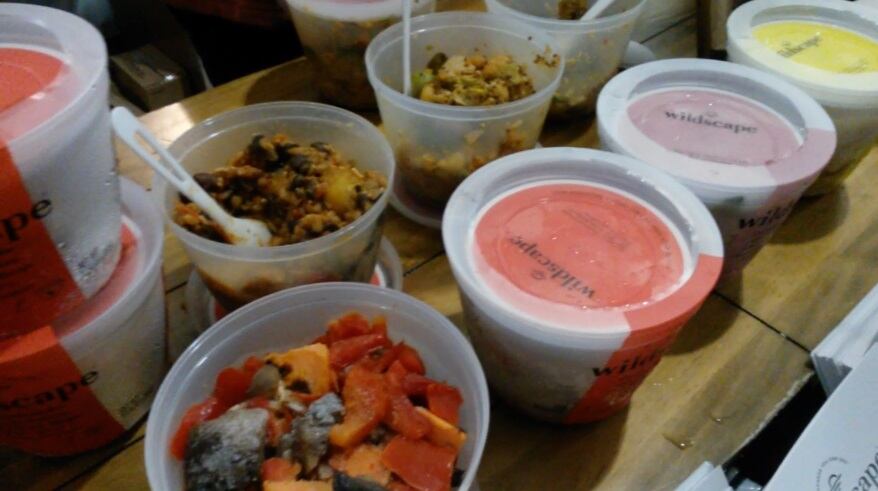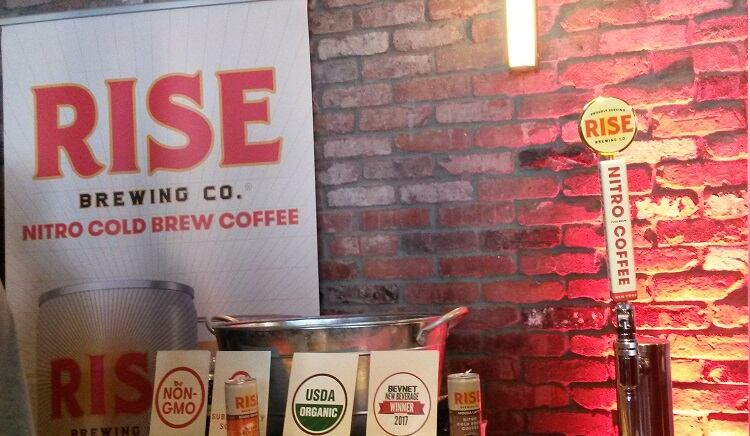Before launching Sweet Earth out of their family home in 2012, co-founders Brian and Kelly Swette each had successful careers complete with corner offices – he as a former PepsiCo exec, eBay COO and Burger King chairman and she as a top marketing executive at PepsiCo and Calvin Klein. But they both gave it all up to go all in on a business venture that – at least on the surface – had more going against it than for it.
Luckily, their gamble and hard work paid off with Sweet Earth Natural Foods growing quickly and catching the eye of Nestlé USA, which acquired the young brand in 2017.
In this episode of FoodNavigator-USA’s Investing in the Future of Food, Brian Swette talks about balancing the risks and benefits of launching a food business, how to navigating funding in an industry with notoriously tight margins and how to ensure an acquisition goes smoothly long after a deal is finalized.
Reflecting on the past six years, Swette jokes that there are four things he did wrong when launching Sweet Food, which by all accounts should have led to its demise: “One, was I entered the food industry, which traditionally is super competitive and has low margins. Secondly I did it with our own money. And three I had my own reputation and fourth I was working for my wife. So, there are many things you might second guess on.”
But, he adds, in many ways these ‘mistakes’ laid the foundation for Sweet Earth’s success because they allowed him and his wife to pursue a mission that would resonate with consumers, which was to create food that could sustain a healthy body, cultivate and curious mind and palate and honor and sustain the land. But while that dream and duo’s passion were essential to Sweet Earth’s start, they were not enough alone to guarantee long-term success.
Following the money
The reality is launching a successful startup requires much more – including money. Luckily, there is a lot of it out there right now for food and beverage companies. But as Swette explains, where that money comes from will influence the long term trajectory of a business and what founders can and cannot do. Which is why in the beginning, the Swettes opted to bootstrap Sweet Earth before taking on an investor and ultimately selling to Nestlé.
“When you read those financial books [on] how to get rich and how to be successful, [they say] always use someone else’s money,” Swette said. But, he explained, Sweet Earth ignored this maxim because “we just wanted to … focus our energy on doing the project versus raising money.”
Also, the duo wanted to run their business their way, and providing all the funds gave them total control.
But eventually, Swette said, the needed not only more money – but more insight, discipline and street cred, all of which experienced investors could provide.
“There is a certain street cred to say, huh, people have evaluated you. You have gone through that rigorous process and they have given you the investor stamp of approval. And in our case, we went with Renewal out of Canada, and they were aligned with us from a mission standpoint,” so Sweet Earth didn’t have to compromise its mission to secure funding, Swette said.
Knowing when to exit
With Renewal’s help, Sweet Earth quickly leveled up and found itself facing off with the big national brands on store shelves – only it didn’t have as large of a budget or as much clout, which placed it at a distinct disadvantage, and a crossroads for deciding how best to move forward financially.
Swette explained that the company initially explored private equity investors, which he says “everyone does,” but that ultimately selling to Nestle was a better bet because “we fit like a glove for them” and he saw more potential for growth while still holding true to the mission that started it all.
Negotiating a mutually beneficial deal for the long term
To minimize any ‘hiccups’ that might occur after the acquisition, Swette recommends that players on both sides of the negotiation table think hard not just about the potential deal, but also about what happens after the deal closes.
“People will spend immense amounts of time looking at the deal,” and trying to maximize their value, but they should spend upwards of 70% of their time also considering the integration plan to ensure that everything is laid out with clarity so that one seems like a perfect union doesn’t fall apart in the first year.
By focusing on the details and maintaining open communication, Swette says both Sweet Earth and Nestle are benefiting from the acquisition, and he predicts the two will do better together going forward than they would apart.
In particular, he said, Sweet Earth is excited to continue innovating with Nestle’s technical support, which already helped the brand roll out a new line of frozen pizzas. Swette said he also is eager to leverage Nestle’s scale, by integrating “certain functions a little bit more,” to ensure the long term viability and reach of the brand. And finally, he said, he wants to help Nestle reinvent itself to better serve evolving consumer needs in the long term.



